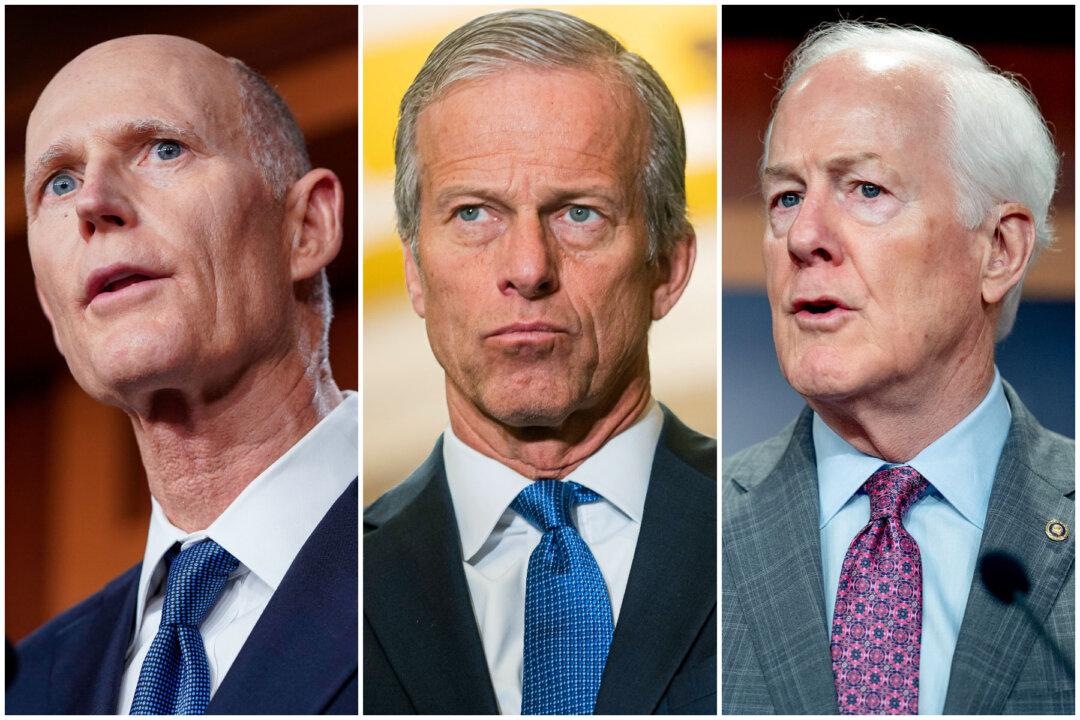Candidates for Senate majority leader have said they will honor President-elect Donald Trump’s request to make appointments when the Senate is in recess.
Ahead of the Senate leadership election on Nov. 13, Sens. John Thune (R-S.D.), John Cornyn (R-Texas), and Rick Scott (R-Fla.) have said they would support recess appointments.





